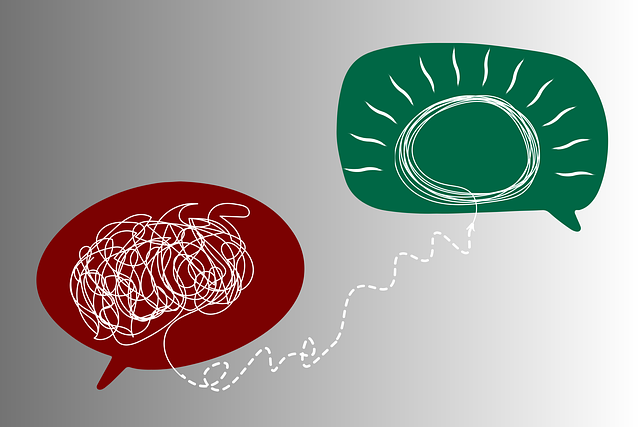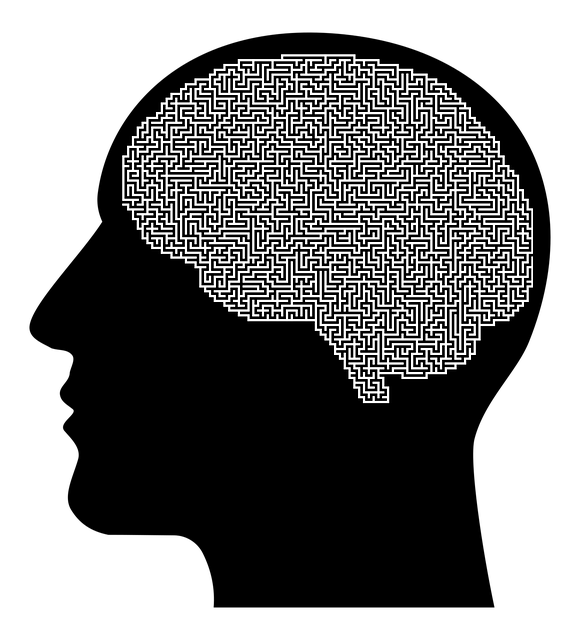Community outreach programs, led by therapy centers specializing in children's mental health, enhance access to care through psychological testing and tailored interventions. These initiatives target specific demographics, uncover unique needs, and foster community resilience with workshops on stress management and risk assessment. Implementing evidence-based practices like CBT and mindfulness, coupled with cultural sensitivity and local partnerships, ensures effective therapy programs that reduce stigma and improve emotional intelligence, ultimately transforming mental health outcomes for underserved communities.
Community outreach programs play a pivotal role in promoting mental health, especially among vulnerable groups. This article explores the multifaceted approach of these initiatives, focusing on their impact and importance in society. We delve into strategies for identifying target communities, particularly children, and highlight the significance of psychological testing as a foundational step. Furthermore, it provides insights on designing effective therapy programs tailored to diverse needs, while offering practical tips to navigate challenges, ensuring successful outreach initiation and long-lasting positive change through Therapy for Children and Psychological Testing.
- Understanding Community Outreach Programs: Their Role and Impact
- Identifying Target Groups: Children and Psychological Testing
- Implementing Effective Therapy Programs for Better Mental Health
- Overcoming Challenges: Tips for Successful Outreach Initiation
Understanding Community Outreach Programs: Their Role and Impact

Community outreach programs play a pivotal role in addressing the mental health and well-being of individuals within diverse communities. These initiatives extend beyond traditional therapeutic settings by bringing psychological services directly to where people live, work, and play. By implementing such programs, organizations like therapy for children centers can significantly impact community members’ lives, especially those facing barriers to accessing care. Psychological testing and assessment are key components, enabling professionals to identify and address specific mental health concerns early on.
Beyond individual therapy, these outreach programs foster a sense of community resilience and collective well-being. They often incorporate workshops focused on stress management, empathy building strategies, and risk assessment for mental health professionals, ensuring that participants gain practical tools to navigate daily challenges. Such inclusive approaches not only cater to immediate needs but also empower individuals with long-term coping mechanisms, contributing to improved overall mental health within the community.
Identifying Target Groups: Children and Psychological Testing

Identifying target groups is a critical step in designing effective community outreach programs. When focusing on children’s mental health, it’s essential to pinpoint specific demographics and needs. This process involves understanding the local population’s diverse psychological landscapes. By conducting comprehensive psychological testing, community health professionals can uncover hidden vulnerabilities and strengths within different age groups and backgrounds. Such assessments help tailor interventions, ensuring that therapy for children is accessible and beneficial to those most in need.
One key consideration is recognizing the impact of childhood experiences on long-term mental well-being. Psychological testing can reveal underlying issues like anxiety, depression, or trauma, which may hinder a child’s development and overall confidence. By targeting these concerns, community outreach programs can foster inner strength development and provide much-needed support. Additionally, risk management planning for mental health professionals becomes more effective when tailored to the unique needs identified through psychological testing, allowing for personalized interventions that boost children’s resilience.
Implementing Effective Therapy Programs for Better Mental Health

Implementing effective therapy programs is a cornerstone of improving mental health within communities, especially among children. Therapy for children goes beyond mere counseling; it involves structured interventions designed to address specific needs such as emotional regulation, social skills development, and trauma recovery. Psychological testing plays a crucial role in identifying these needs by providing detailed insights into a child’s cognitive, behavioral, and emotional state. This data is essential for tailoring therapy sessions that are not only effective but also age-appropriate and culturally sensitive.
Integrating evidence-based practices, such as cognitive-behavioral therapy (CBT) and mindfulness-based interventions, can significantly enhance the impact of these programs. Mood management techniques, taught through structured therapy sessions, empower children to cope with stress and anxiety effectively. Moreover, addressing mental illness stigma reduction efforts within these programs fosters a supportive environment where children feel safe to express their feelings openly. In line with Mental Health Policy Analysis and Advocacy, such initiatives contribute to broader systemic changes, ensuring that mental health support is accessible, affordable, and non-stigmatizing for all community members.
Overcoming Challenges: Tips for Successful Outreach Initiation

Implementing community outreach programs can be a rewarding yet challenging endeavor. When navigating unchartered territories, mental health professionals must overcome various obstacles to ensure their initiatives are successful and impactful. One significant challenge is reaching underserved populations who may face barriers such as limited access to resources, cultural hesitancy, or lack of awareness about available services. To effectively address these challenges, professionals should focus on building trust within the community through cultural sensitivity training and partnerships with local organizations.
Additionally, integrating evidence-based practices like therapy for children and psychological testing into outreach programs is crucial. Emphasizing emotional intelligence can foster better connections with community members and enhance the program’s effectiveness. Conducting thorough risk assessments before implementing any initiative also helps mental health professionals anticipate potential hazards and implement safety measures. By combining these strategies with a deep understanding of the community’s unique needs, outreach programs can become powerful tools for improving mental health outcomes.
Community outreach programs, by focusing on psychological testing and implementing tailored therapy for children, can significantly enhance mental health outcomes. By identifying at-risk groups and providing accessible support, these initiatives have the potential to revolutionize care. Overcoming challenges through strategic planning and community engagement ensures successful outreach, fostering healthier and more resilient individuals. This approach is a vital step towards creating a supportive environment where every child has access to essential therapy services.












